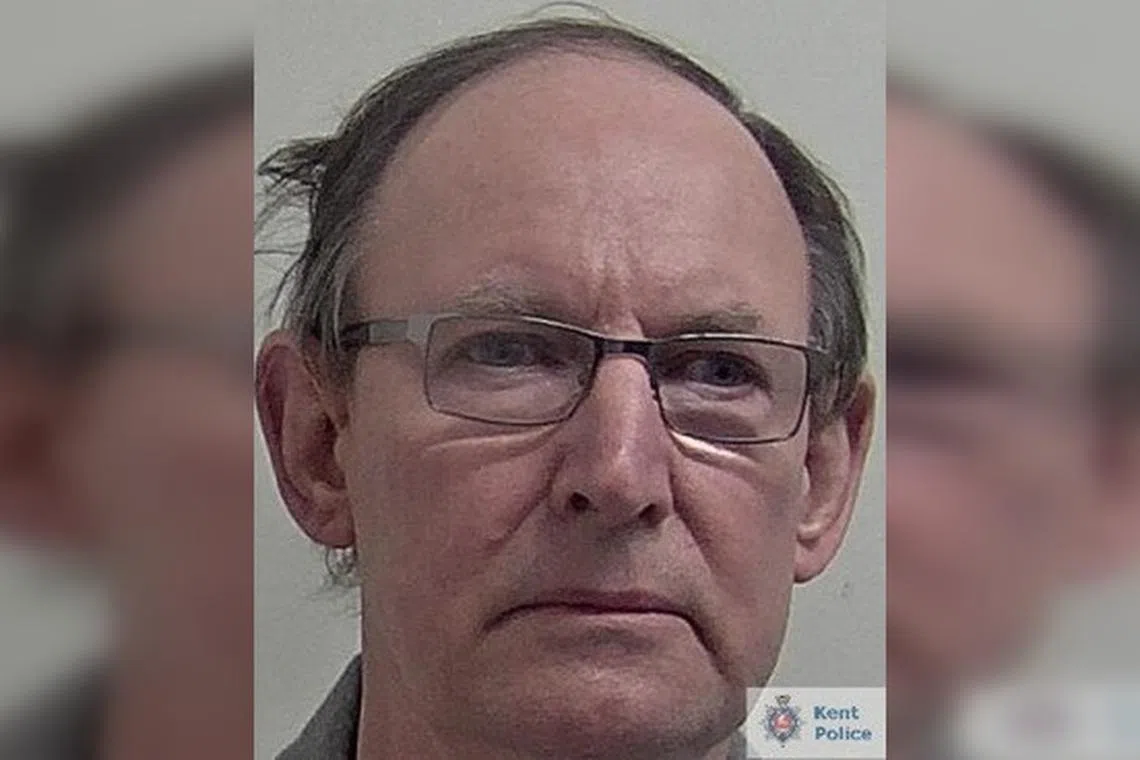UK hospital group criticised over necrophiliac killer
Sign up now: Get ST's newsletters delivered to your inbox

David Fuller violated at least 101 women and girls aged from nine to 100 while employed at two UK hospitals.
PHOTO: KENT POLICE
LONDON - A UK hospital group was on Nov 28 criticised for a catalogue of failings that allowed an employee to sexually abuse the bodies of girls and women in mortuaries for more than a decade.
David Fuller, 69, violated at least 101 women and girls aged from nine to 100 while employed at two hospitals in Kent, south-east England, from 2005 to 2020.
The former hospital handyman was already serving a whole-life sentence for the sexually motivated murders of two young women in the 1980s when the necrophilia offences came to light.
Details were published on Nov 28 of the first phase of an inquiry launched two years ago into how he was able to carry out the attacks undetected.
Inquiry chairman Jonathan Michael said management, governance, regulation, policy and procedural failings combined with “a persistent lack of curiosity” to allow Fuller to offend for so long.
“Over the years, there were missed opportunities to question Fuller’s working practices,” the former hospital consultant and chief executive told a central London news conference.
“He routinely worked beyond his contracted hours, undertaking tasks in the mortuary that were not necessary or which should not have been carried out by someone with his chronic back problems.
“This was never properly questioned.”
In one year, Fuller visited the mortuary 444 times but it went “unnoticed and unchecked”, he told reporters.
Mr Michael urged the Maidstone and Tunbridge Wells NHS Trust to “reflect seriously and carefully on their responsibility for the weaknesses and failings” and implement his recommendations.
Those include installing security cameras in the hospital mortuary and post-mortem room, and for maintenance staff to work in pairs in those areas.
“(The) practice of leaving deceased people out of mortuary fridges overnight” or while maintenance work is carried out should end, he added. AFP


